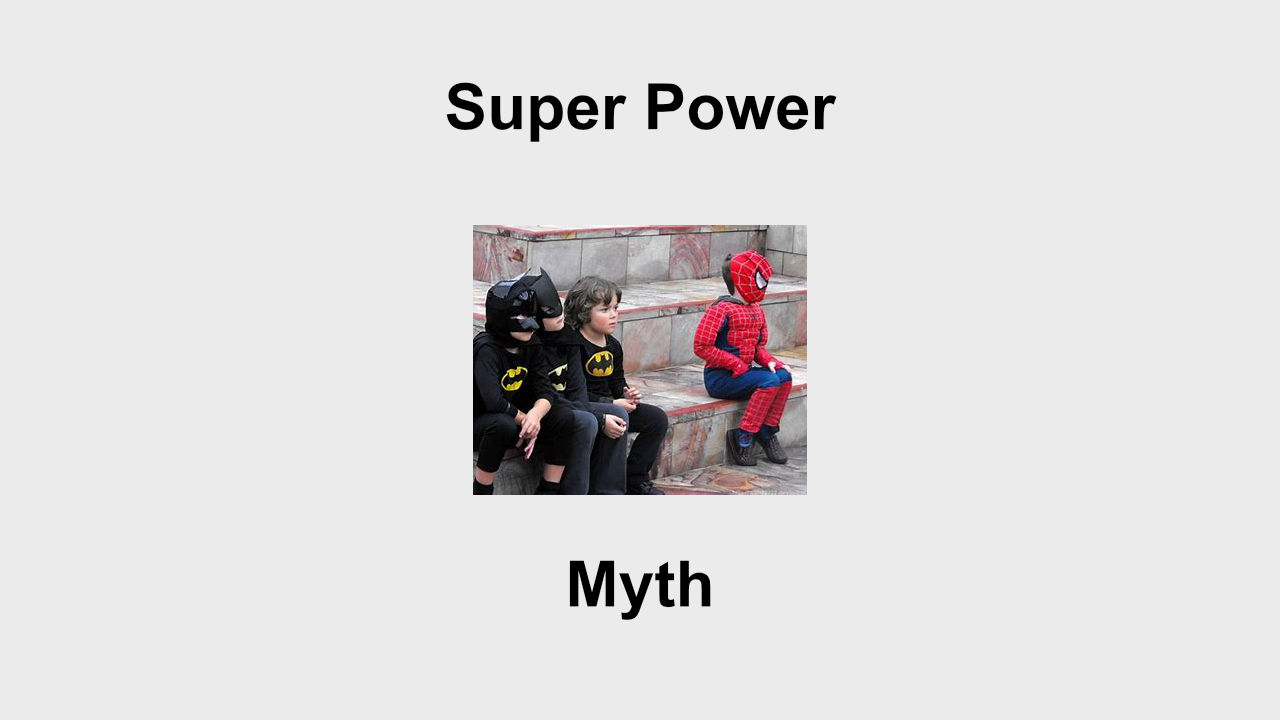The Super Powers Myth of Autism and Other Neurodistinct Conditions

While this is a topic that has bothered me for quite a while there were some recent posts on LinkedIn that pushed my buttons and motivated me to write about the "SuperPowers" myth. Here is the text out of one of the posts:
"NEURODIVERGENT
TALENT IS 90% TO
140% MORE
PRODUCTIVE THAN
NEUROTYPICAL
EMPLOYEES."
There was another post about Rudolf the red nosed reindeer being a symbol for the neurodistinct because he had an unrecognized super power and was shunned until it came to light. The underlying premise is again that being neurodistinct means you have a super power.
Promoting the idea of "superpowers" in neurodistinct individuals, particularly those on the autism spectrum, can be harmful to the neurodiversity movement in the workplace. This concept perpetuates the stereotype that individuals with autism and other neurodistinctions have exceptional abilities in specific areas, such as math or computer programming, but lack basic social or other skills.
While some autistic individuals and others who are neurodistinct may have exceptional abilities, it is important to recognize that they are not a monolithic group and should not be reduced to a set of stereotypes. This oversimplification ignores the vast range of abilities, interests, and experiences that neurodistinct people, including autistics have. Additionally, it implies that neurotypical individuals don't have "superpowers", which is quite untrue. Neurodistinct or neurotypical a subset of each group has advanced abilities in specific areas.
Additionally, the emphasis on "superpowers" can actually hurt efforts to promote neurodiversity in the workplace. By focusing on the supposed exceptional abilities of autistic individuals and those with other neurodistinctions, employers may overlook their potential for a wider range of roles and responsibilities. This narrow focus on specific abilities can also lead to missed opportunities for these individuals to develop and showcase their full range of skills.
Furthermore, promoting the idea of "superpowers" can perpetuate the notion that neurodistinct individuals and particularly autistics lack basic social skills, which is not only untrue but also damaging. This stereotype can discourage employers from considering individuals with autism for roles that require social interaction, even if they are highly qualified. There is an unlimited number of examples of these people holding and excelling at public facing, communication heavy roles. Taking myself as an autistic example, I have successfully held many sales roles, speak extensively to groups with hundreds or even thousands of attendees, and currently am a technical trainer for a major global technology company where I work with some of their highest profile clients.
Instead of promoting the idea of "superpowers", it is important to emphasize the unique strengths and talents that neurodistinct individuals including autistics bring to the workplace. This includes many skills beyond technical abilities, including also problem-solving skills, creativity, innovation, music and theatrical skills and for some attention to detail.
The neurodiversity movement in the workplace should focus on creating a more inclusive environment where individuals with autism and other neurodistinct conditions are valued for their unique strengths and abilities. This includes offering accommodations that support their needs, such as managers that understand and encourage unique thinking styles, alternative communication methods, and promoting a culture of acceptance and understanding.
It's important to note that the concept of "superpowers" is not limited to individuals on the autism spectrum or those who identify as neurodisstinct. Neurotypical individuals can also have unique abilities and talents that can be considered "superpowers." This highlights the importance of valuing individuals for their unique strengths and abilities, regardless of whether they are neurodistinct or not.
The notion of "superpowers" in individuals on the autism spectrum or those who identify as neurodistinct should not perpetuate the stereotype that these individuals are fundamentally different from neurotypical individuals. Instead, the focus should be on creating a more inclusive workplace that values and appreciates the unique strengths and abilities of all individuals, regardless of their neurotype.
In conclusion, promoting the idea of "superpowers" in individuals with autism and other neurodistinct conditions can be harmful to the neurodiversity movement in the workplace. Instead, we should focus on creating a more inclusive environment where all individuals are valued for their unique strengths and abilities. By recognizing and embracing the range of skills and experiences that all individuals bring to the workplace, we can create a more dynamic and innovative environment that values and promotes neurodiversity and the innovation which can come from it.
* This post was created with the assistance of Chat GPT
DON'T MISS TIM'S PODCAST
podcast.TimGoldstein.com
Stay connected with news and updates!
Join us to receive the latest news and updates from Tim.
Don't worry, you will not be spammed and your information will not be shared.